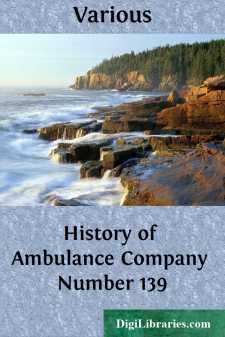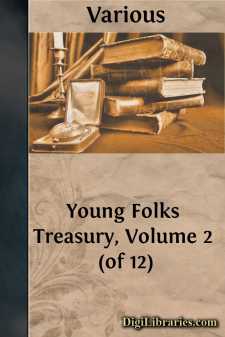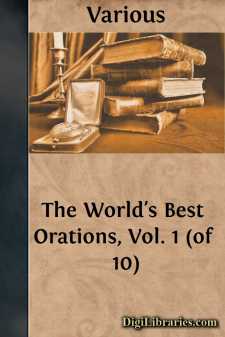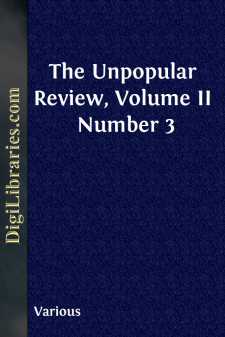Categories
- Antiques & Collectibles 13
- Architecture 36
- Art 48
- Bibles 22
- Biography & Autobiography 813
- Body, Mind & Spirit 142
- Business & Economics 28
- Children's Books 17
- Children's Fiction 14
- Computers 4
- Cooking 94
- Crafts & Hobbies 4
- Drama 346
- Education 46
- Family & Relationships 57
- Fiction 11829
- Games 19
- Gardening 17
- Health & Fitness 34
- History 1377
- House & Home 1
- Humor 147
- Juvenile Fiction 1873
- Juvenile Nonfiction 202
- Language Arts & Disciplines 88
- Law 16
- Literary Collections 686
- Literary Criticism 179
- Mathematics 13
- Medical 41
- Music 40
- Nature 179
- Non-Classifiable 1768
- Performing Arts 7
- Periodicals 1453
- Philosophy 64
- Photography 2
- Poetry 896
- Political Science 203
- Psychology 42
- Reference 154
- Religion 513
- Science 126
- Self-Help 84
- Social Science 81
- Sports & Recreation 34
- Study Aids 3
- Technology & Engineering 59
- Transportation 23
- Travel 463
- True Crime 29
Sort by:
by:
Various
When war was declared on Germany April 5th, 1917, the government sent out calls for volunteers. The auxiliary organizations were to be the first ones to go across, and it looked as if ambulance companies would be among the first to get into action. Many of the universities and colleges in the east started at once to organize ambulance companies. These companies were quickly filled, and the enthusiasm...
more...
by:
Various
There was a crooked man, and he went a crooked mile,He found a crooked sixpence against a crooked stile:He bought a crooked cat, which caught a crooked mouse,And they all lived together in a little crooked house. Curly locks, curly locks, wilt thou be mine?Thou shalt not wash dishes, nor yet feed the swine;But sit on a cushion, and sew a fine seam,And feed upon strawberries, sugar, and cream. My little...
more...
by:
Various
MYTHS OF GREECE AND ROME BAUCIS AND PHILEMON ADAPTED BY C.E. SMITH One evening, in times long ago, old Philemon and his wife Baucis sat at their cottage door watching the sunset. They had eaten their supper and were enjoying a quiet talk about their garden, and their cow, and the fruit trees on which the pears and apples were beginning to ripen. But their talk was very much disturbed by rude shouts and...
more...
by:
Various
BAYARD TAYLOR. SELECTIONS FROM THE EXPERIENCES OF THE A.C. "Bridgeport! Change cars for the Naugatuck Railroad!" shouted the conductor of the New York and Boston Express Train, on the evening of May 27, 1858.... Mr. Johnson, carpet-bag in hand, jumped upon the platform, entered the office, purchased a ticket for Waterbury, and was soon whirling in the Naugatuck train towards his destination. On...
more...
by:
Various
Several considerations have prompted the editor of this volume in the compilation of its pages. It constitutes a contribution to the national literature which is assumed to be not unworthy of it, and which is otherwise valuable as illustrating the degree of mental and art development which has been made, in a large section of the country, under circumstances greatly calculated to stimulate talent and...
more...
by:
Various
THE ORATORY OF ANGLO-SAXON COUNTRIES By Edward A. Allen, Professor of Anglo-Saxon and English Literature in the University of Missouri English-speaking people have always been the freest people, the greatest lovers of liberty, the world has ever seen. Long before English history properly begins, the pen of Tacitus reveals to us our forefathers in their old home-land in North Germany beating back the...
more...
by:
Various
I THE GROUNDS OF UNITY In face of the greatest tragedy in history, it is to history that we make appeal. What does it teach us to expect as the issue of the conflict? How far and in what form may we anticipate that the unity of mankind, centring as it must round Europe, will emerge from the trial? Only two occasions occur to the mind on which, since the break up of the Roman Empire, a schism so serious...
more...
by:
Various
Unsocial Investments The “new social conscience” is essentially a class phenomenon. While it pretends to the rôle of inner monitor and guide to conduct for all mankind, it interprets good and evil in class terms. It manifests a special solicitude for the welfare of one social group, and a mute hostility toward another. Labor is its Esau, Capital its Jacob. Let strife arise between workingmen...
more...
by:
Various
INTRODUCTION The Negro has been in America just about three hundred years and in that time he has become intertwined in all the history of the nation. He has fought in her wars; he has endured hardships with her pioneers; he has toiled in her fields and factories; and the record of some of the nation's greatest heroes is in large part the story of their service and sacrifice for this people. The...
more...
by:
Various
CHAPTER I. Every one who knows Oxford, and a good many besides, must have heard of certain periodical migrations of the younger members of that learned university into distant and retired parts of her Majesty’s dominions, which (on the “lucus a non lucendo” principle) are called and known by the name of Reading Parties. Some half-dozen undergraduates, in peril of the coming examination, form...
more...











